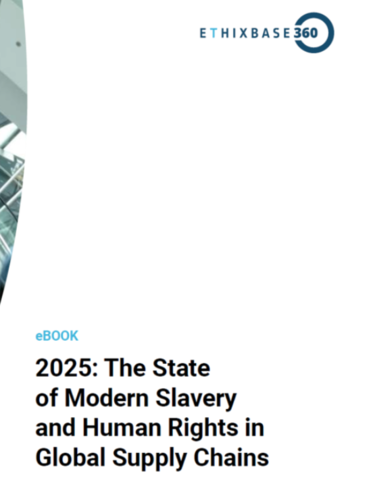Think your business is sustainable? Soon you’ll need to prove it
Sponsored by Enhesa
Corporate sustainability has become one of the most complex and controversial issues businesses face today. Lean too far into promoting all things “green” and you run the risk of drawing unwanted scrutiny. Ignore the very real – and growing – global sustainability reporting requirements and you will face serious fines and a reputational nightmare.
In response, many companies have simply stopped talking about sustainability altogether. One recent analysis found that the number of mentions of the phrases “environmental, social and governance”, “ESG”, “diversity, equity, and inclusion”, “DEI”, or “sustainability” on corporate earnings calls of US-listed companies declined by 31 per cent in April-June of 2023, versus the same period a year earlier.
The phenomenon, which has come to be known as “green hushing”, is the result of several factors. For one, there has been localised ESG backlash whereby investor groups, lawmakers and media figures have begun speaking out against corporate ESG initiatives, suggesting they run counter to fiduciary responsibility. In fact, some 150 anti-ESG bills have been introduced by US lawmakers so far in 2024. And, according to a report from ISS-Corporate, 13 per cent of shareholder proposals submitted for this year’s proxy season are focused on countering ESG initiatives. In addition, new “greenwashing” instruments introduced in the European Union, the United States, the UK and Australia – along with several individual US states and EU member states – penalise companies for making sustainability claims they cannot substantiate.
Follow the rules, not the hype
But don’t let this rising tide of sustainability silence fool you. Whether they choose to talk about it or not, companies are increasingly on the hook to disclose more detail than ever about how sustainable their business practices truly are. Now, however, these communications will not take the form of stylised marketing slicks and self-promotional press releases. They will be mandated, assured and highly detailed risk reports that show proof by-the-numbers, connecting sustainability strategy to real-world business risks and opportunities.
Several new regulations are forcing this change. There is the European Union’s (EU) Corporate Sustainability Reporting Directive (CSRD), which officially took effect this year, the EU Corporate Sustainability Due Diligence Directive (CSDDD), which was approved by the Legal Affairs Committee of the European Parliament in March, and the international standards for corporate sustainability disclosure on climate-related risks, introduced last year by the IFRS’ International Sustainability Standards Board (ISSB). In the US, the Securities and Exchange Commission has recently adopted rules to enhance and standardise climate-related disclosures for investors, which it was forced to quickly pause pending scrutiny by Republican lawmakers and a review by the US Court of Appeals.
While the situation in the US certainly highlights the controversial nature of sustainability-focused regulation, business leaders should not be distracted by the noise. Between the European regulations that have already taken effect and the international accounting standards already being adopted around the globe, businesses everywhere will need to disclose information on what they see as the risks and opportunities arising from social and environmental issues, and also on the impact of their activities on people and the environment.
The CSRD alone includes some of the most rigorous sustainability reporting requirements ever to be imposed on businesses, among them the responsibility to disclose sustainability related risks in their own business and in those of their suppliers, and the requirement to have all that information and data scrutinised and evaluated by independent assessors for assurance purposes. By including suppliers in the mix – many of whom will be much smaller companies – the regulation ensures that a wide variety of companies around the globe, not just the largest European businesses, will need to comply.
Preparing for an uncertain future
Ultimately, this increased layer of scrutiny is going to force companies to get very serious about their materiality assessments. These assessments, which define the sustainability and ESG topics that matter most to a business and their stakeholders, are designed to guide the way companies report sustainability risks and opportunities and integrate them into overall corporate strategy and investment plans. Importantly, they also provide a benchmark for measuring progress and a clear-cut, numbers-driven formula for reporting sustainability risks as they would financial or accounting-related metrics.
As sustainability compliance requirements continue to evolve under the watchful eyes of politicians, investors, the media and consumers, companies will need robust, real-time solutions that allow them to take a proactive approach to risk management – one that takes the emotion out of sustainability reporting by focusing on hard data. That means working with partners who can provide a comprehensive view of the global regulatory landscape. It is simply not enough to have partial insights. Companies need a 360-degree view of their risk exposures to successfully navigate this new environment.
Where public sentiment on corporate sustainability is going over the course of the next decade is anyone’s guess. At Enhesa, we believe that the best way to prepare for that uncertain future is to arm companies with all the information at their disposal to help improve their processes, streamline their compliance decision making and, ultimately, allow them to be ready for whatever comes next.
Corporate sustainability can feel like a minefield for organisations to traverse – especially since the regulations and frameworks are continuously updating, with many still in the process of moving through the various consultation stages. Getting a clear understanding of the sustainability landscape is key. So, whether it’s learning more about the relevant regulations, standards, frameworks and requirements within your jurisdictions, or ensuring your compliance programs are robust enough to withstand increased scrutiny, it’s never too early to start preparing for the changes that are coming.
Learn more about the regulatory environment and its impact on businesses. Read about the CSRD’s requirements, compare the associated European Sustainability Reporting Standards to the IFRS’s Sustainability Standards, and get Enhesa’s tips on establishing and enhancing the foundation for compliance and more.
For more information, please visit www.enhesa.com
by Mary Foley, Expert Services Strategy Director at Enhesa, a leading provider of global regulatory and sustainability intelligence.

Business Reporter Team
Most Viewed
Winston House, 3rd Floor, Units 306-309, 2-4 Dollis Park, London, N3 1HF
23-29 Hendon Lane, London, N3 1RT
020 8349 4363
© 2024, Lyonsdown Limited. Business Reporter® is a registered trademark of Lyonsdown Ltd. VAT registration number: 830519543






